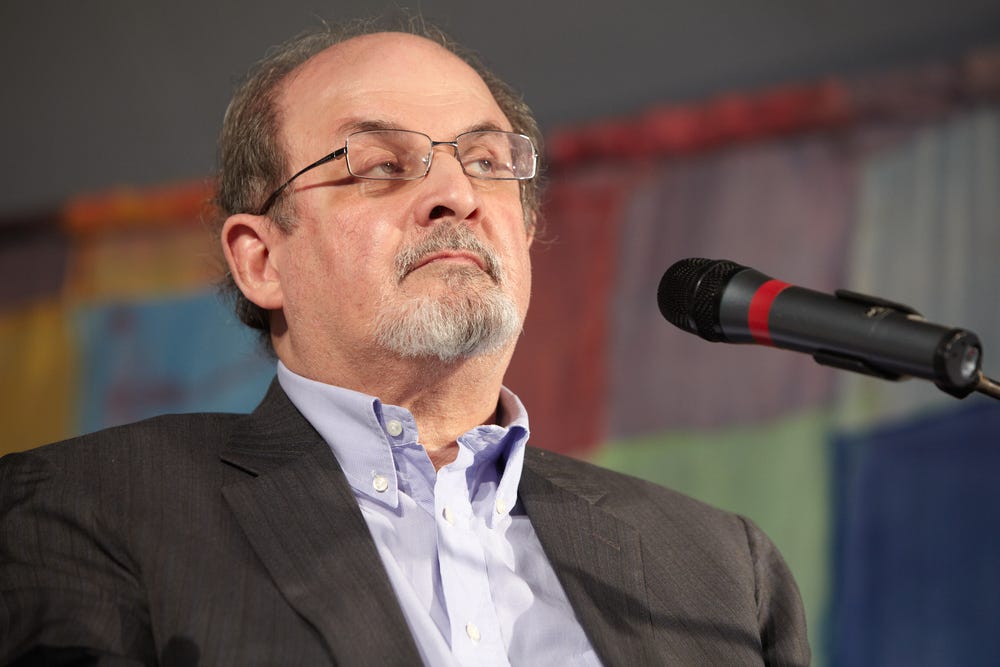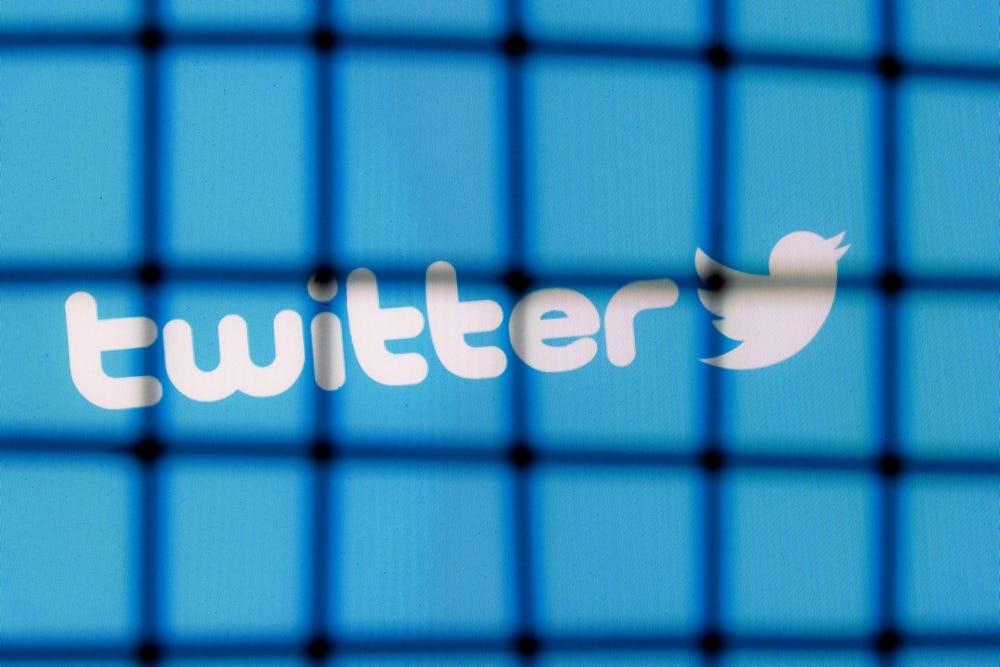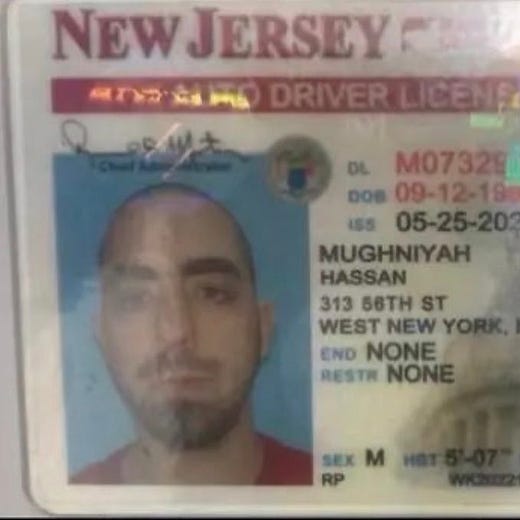E-Pluribus | August 15, 2022
Salman Rushdie knew what he was talking about; what Rushdie's experience tells us about Western Civilization; and another strike against Twitter and free speech.
A round-up of the latest and best writing and musings on the rise of illiberalism in the public discourse:
Bari Weiss: We Ignored Salman Rushdie's Warning
As personally devastating as being the target of an online “cancel culture” attempt might be, to Salman Rushdie it might seem like a relief in comparison to the decades he has lived under the shadow of death threats and now a serious attempt on his life for putting words to paper. Bari Weiss at Common Sense says that we have as a society ignored Rushdie’s warnings at our peril, and his.
Salman Rushdie has lived half of his life with a bounty on his head—some $3.3 million promised by the Islamic Republic of Iran to anyone who murdered him. And yet, it was in 2015, years after he had come out of hiding, that he told the French newspaper L’Express: “We are living in the darkest time I have ever known.”
You would think that Rushdie would have said such a thing in the height of the chaos, when he was in hiding, when those associated with the book were being targeted for murder. By 2015, you might run into Rushdie at Manhattan cocktail parties, or at the theater with a gorgeous woman on his arm. (He had already been married to Padma, for God’s sake.)
So why did he say it was the “darkest time” he had ever known? Because what he saw was the weakening of the very Western values—the ferocious commitment to free thought and free speech—that had saved his life.
“If the attacks against Satanic Verses had taken place today,” he said in L’Express, “these people would not have defended me, and would have used the same arguments against me, accusing me of insulting an ethnic and cultural minority.”
He didn’t have to speculate. He said that because that is exactly what they did.
Read it all here.
Stanley Kurtz: Salman Rushdie and the Decline of Western Civilization
Writing for National Review, Stanley Kurtz argues that a straight line can be drawn from the West’s initial tepid response to threats that rained down on Salman Rushdie in 1989 when his book was released. The decades of downplaying and even denigrating Western civilization have only made the problem worse.
Nearly a generation later, writing for National Review Online, I noted an uptick in anti-free speech sentiment on campus. The culmination came in 2015, when a conference on free speech at Yale run by conservative students was disrupted by students on the left. An open attack on a conference about freedom of speech was shocking at the time. Nowadays, of course, we wouldn’t even blink. I realized in 2015, however, that merely exposing shameful violations of free speech would no longer suffice. That’s when I offered my first proposal for state-level legislation on campus free speech. I’ve been working on model legislation ever since.
Surveys now show that up to two-thirds of students approve of shouting down campus speakers, while almost a quarter believe that violence can be used to cancel a speech. These are the views of the generation that grew up without required courses in Western civilization, a course the core theme of which was the long, bloody, and difficult path by which our freedoms were conceived and established. Those courses nurtured a sense of reverence around our liberties, and a sense of shame in those violating the liberties of others. We have lost both the reverence and the shame.
Read it all.
Wall Street Journal Editorial Board: The White House and Twitter Censorship
The words “polarizing” might be inadequate to describe Alex Berenson. The abrasive author has had little patience for the cheerleading that characterized much of the response to the COVID vaccines — a response he alleges is not supported by the data or science. Recent documents revealed via a lawsuit show that the Biden administration, which saw Berenson as a crank or worse, worked behind the scenes to influence Twitter to ban the author from its platform. The editorial board of the Wall Street Journal writes that, whatever your view of Berenson, everyone should be concerned about government censorship, even when it’s secondhand censorship.
Last July President Biden publicly blamed social media companies for “killing people” by not removing content that encouraged vaccine hesitancy.
Hours after Mr. Biden’s comment, Twitter locked Mr. Berenson’s account. The next month Twitter permanently banned Mr. Berenson[.]
Mr. Berenson sued the company for, among other things, removing him in violation of its own stated policies. In settling the lawsuit last month, Twitter acknowledged it erred in banning Mr. Berenson and agreed to restore his account. As part of legal discovery, Twitter was required to produce documents involving him. Now Mr. Berenson is making some public.
[ . . . ]
Twitter didn’t ban Mr. Berenson until August, but its employees were clearly under White House pressure to do so. This pressure probably increased over the summer of 2021 as the Delta variant surged and waning vaccine efficacy stymied Mr. Biden’s promise to shut down the virus.
Twitter is a private company. But evidence of a direct connection between White House pressure and Twitter censorship bolsters the argument that social-media platforms can be sued as “state actors” for restricting speech in violation of the First Amendment. Courts have been reluctant, and properly so, to allow such lawsuits to proceed without evidence linking specific demands from government officials to censorship.
Read the whole thing.
Around Twitter
The Foundation for Individual Rights & Expression on the attempted assassination of Salman Rushdie:
Lee Fang on the continued abuse of the “disinformation” label:
And finally, “motive unclear”:










